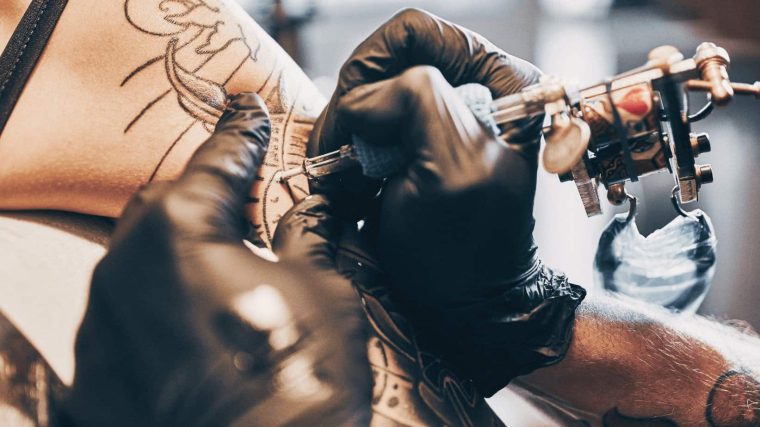Sponsored
In today’s beauty industry, cosmetic tattooing has become increasingly popular, offering individuals semi-permanent solutions for enhancing their features. From microblading eyebrows to lip blushing, cosmetic tattoo procedures can provide clients with long-lasting results. However, the practice of cosmetic tattooing comes with responsibilities, one of which is obtaining a proper license.
Understanding Cosmetic Tattooing
What is Cosmetic Tattooing?
Cosmetic tattooing, also known as micropigmentation or permanent makeup, involves the implantation of pigment into the skin’s dermal layer. This process aims to enhance facial features, such as eyebrows, lips, and eyeliner, providing a semi-permanent solution to traditional makeup.
Popular Types of Cosmetic Tattoo Procedures
- Microblading: A technique for enhancing eyebrows by creating hair-like strokes with a handheld tool.
- Lip Blushing: Adding color to the lips for a fuller and more defined appearance.
- Eyeliner Tattoo: Applying pigment along the lash line to create the illusion of fuller lashes.
Importance of Licensing
Obtaining a cosmetic tattoo license is essential for both the artist and the client. It ensures that the procedures are performed safely and hygienically, minimizing the risk of complications.
Ensuring Safety and Quality Standards
Licensed cosmetic tattoo artists undergo training that covers sanitation, sterilization, and infection control procedures. This knowledge is crucial for preventing the spread of infections and maintaining a sterile environment during procedures.
Legal Requirements for Cosmetic Tattoo Artists
Many states require cosmetic tattoo artists to hold a license to practice legally. These regulations aim to protect the public from unqualified practitioners and ensure that only trained professionals perform cosmetic tattoo procedures.
Steps to Obtain a Cosmetic Tattoo License
Becoming a licensed cosmetic tattoo artist involves several steps, starting with researching the regulations in your state.
Researching State Regulations
Each state has its own set of requirements for obtaining a cosmetic tattoo license. It’s essential to research these regulations thoroughly to understand the training and documentation needed to apply.
Completing Required Training
Most states require aspiring cosmetic tattoo artists to complete a training program approved by the health department. These programs cover topics such as safety protocols, color theory, and skin anatomy.
Applying for License
Once the training is complete, the next step is to apply for a cosmetic tattoo license through the appropriate regulatory body. This typically involves submitting proof of training, documentation of bloodborne pathogen training, and paying an application fee.
Benefits of Obtaining a License
Building Trust with Clients
Having a cosmetic tattoo license demonstrates professionalism and competency to clients. It instills confidence in them, knowing that the artist has undergone proper training and follows industry standards.
Access to Professional Opportunities
Licensed cosmetic tattoo artists may have access to more significant professional opportunities, such as working in medical spas, salons, or cosmetic clinics. These establishments often require proof of licensure as a prerequisite for employment.
Challenges in Obtaining a License
While obtaining a cosmetic tattoo license offers numerous benefits, it also comes with challenges that aspiring artists may face.
Cost of Training and Licensing
The cost of training programs and licensing fees can be significant, particularly for individuals just starting in the industry. However, investing in proper education and licensure is crucial for long-term success and client safety.
Compliance with Health and Safety Regulations
Maintaining compliance with health and safety regulations can be challenging, as cosmetic tattoo artists must stay updated on industry standards and best practices. This includes regularly renewing licenses, attending continuing education courses, and adhering to local health department guidelines.
Conclusion
In conclusion, obtaining a cosmetic tattoo license is vital for aspiring artists looking to establish themselves in the industry. It not only ensures compliance with legal requirements but also demonstrates a commitment to professionalism and client safety. By following the necessary steps to obtain licensure and staying informed about industry regulations, cosmetic tattoo artists can build successful and reputable careers.
FAQs
1. Is a cosmetic tattoo license different from a regular tattoo license?
Yes, cosmetic tattooing involves specialized procedures and techniques tailored for enhancing facial features, requiring specific training and licensing.
2. How long does it take to complete training for a cosmetic tattoo license?
The duration of training programs can vary, but most courses range from several days to a few months, depending on the depth of the curriculum.
3. Can I practice cosmetic tattooing without a license?
Practicing cosmetic tattooing without a license is illegal in many states and can result in fines, legal consequences, and damage to your reputation.
4. Do I need to renew my cosmetic tattoo license regularly?
Yes, most states require cosmetic tattoo licenses to be renewed periodically, typically every one to three years, to ensure that practitioners stay updated on safety protocols and industry standards.
5. What resources are available for finding approved training programs for cosmetic tattooing?
You can consult your state’s health department website or contact local beauty schools and training academies specializing in cosmetic tattooing for information on approved training programs.


